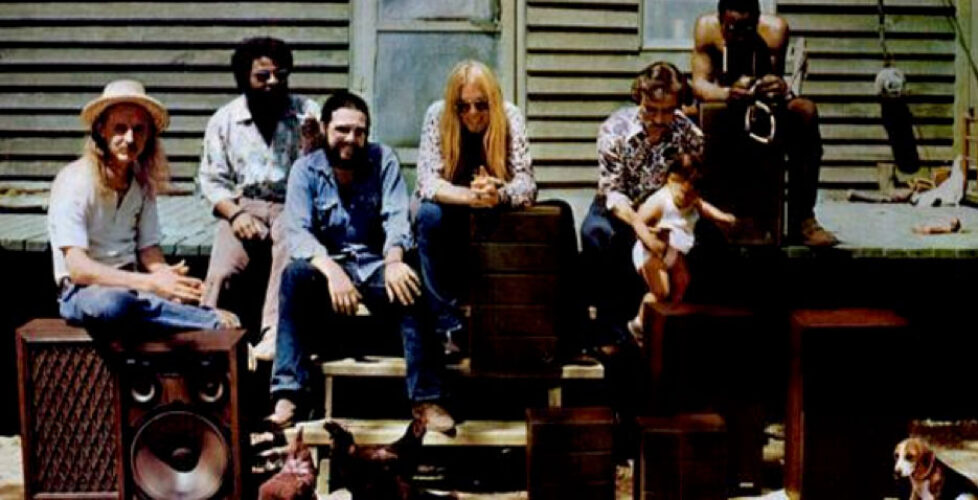“Brothers and Sisters”: Peak Allman Brothers

On this, the 50th anniversary year of The Allman Brothers’ Brothers and Sisters album, it would be hard to imagine a better journalist to cover its mad, glorious history than best-selling author Alan Paul.
Paul has already displayed his vibrant writing and deep-dive research chops in One Way Out: The Inside Story of the Allman Brothers. While that earlier work was more sweeping in its scope, Brothers and Sisters uses the focal point of their titular 1973 album, which garnered over 7 million in sales and remains a masterpiece of the Southern Rock genre.
Paul brackets their most impactful LP via a framework of key aspects of The Allman Brothers Band’s existence from 1971 through 1976: from its inception by charismatic founder Duane Allman, whose tragic death at 24 in 1971 from a motorcycle accident would have seemed to spell the proverbial death knell for the band.
Miraculously, this did not occur. Despite their history being steeped in ongoing tragedy, the founding members, Gregg Allman, Dickey Betts, Berry Oakley, Butch Trucks, and Jaimoe Johanson kept it together through the power of their extraordinary musicianship. With leader Duane as their guardian angel, they plowed onward to make musical history.
Then bassist Berry Oakley shared an eerily similar fate to Duane’s a year later and the band recruited Chuck Leavell and Lamar Williams. Their combined skills yielded the rightfully revered Brothers and Sisters, whose hits “Ramblin’ Man” and “Jessica” became enduring classics.
Alan Paul fleshes out another superb book on the Allmans with impressive research, engaging writing, and entertaining footnotes. Plus, he adds the secret sauce of folding in hundreds of hours of fresh-to-the-market cassette tapes containing revelatory interviews with all the band members. He acquired these from their long-time archivist Kirk West, who recorded the tapes in the 1980s for a book he never got around to writing. He entrusted them to Paul, who makes wonderful use of them. The intimate intel and observations of the band give Brothers and Sisters depth and poignance. The ghostly voices of the now-departed Gregg Allman and Butch Trucks are particularly moving.
Using the Brothers and Sisters album as a nucleus, Alan Paul begins their journey a bit earlier, for context. We learn about Duane Allman’s singular brilliance, not only as a musician and muse to his brother Gregg, but as a natural-born leader to the group.
There’s great coverage of the largest live music festival of all time – no, not Woodstock – but 1973’s “Summer Jam” in Watkins Glen, New York. This event, featuring the mind-bending line-up of The Allmans, The Grateful Dead, and The Band, brought 600,000 peaceful (if wasted) teens to the area for a one-off jam session.
There were ego and substance abuse issues to go around, not surprising for any clan of young men who, armed with little more than their God-given talents, took their naivete on the road as fame had its way with them. Personnel changes and management angst abounded. Paul humanizes these rock gods with empathy; their own words make each man more accessible.
The Allmans did influential deeds outside of music, getting involved in Native American causes and utilizing their strong friendship with 1976 presidential candidate Jimmy Carter. Carter was a little-known peanut farmer and Georgia governor at the time. Despite his straitlaced, scholarly Christian demeanor and the Allmans’ hippie debauchery, these gentlemen forged a common bond. President Carter was forever grateful for their vocal and musical support. The Allmans put Carter on the map and brought countless youthful votes his way.
Gregg Allman remains a much-missed iconic figure whose emotional struggles and lifelong ache over the loss of his beloved brother never stopped him from honoring Duane and leaving an extraordinary legacy of superb southern rock, both with the ever-shifting band and on his own.
His quirky courtship and short-lived marriage to Cher is covered with sensitivity. It brought his already considerable fame into a completely new, toxic realm. Gregg was an undeniable star in his world but Cher was globally huge. Renowned and pursued as he was, it didn’t compare to being deluged by paparazzi and slapped onto celebrity tabloid covers, a situation neither of them was ultimately able to navigate together, along with his substance abuse struggles. It plays as a love story that clashed, in part, because of their varying levels of fame.
Brothers and Sisters: The Allman Brothers Band and the Inside Story of the Album that Defined the 1970s is a scholarly book with a warm spirit and filled with fresh information on one of America’s greatest rock bands. It is a noble, kick-ass addition to the literary rock canon.
